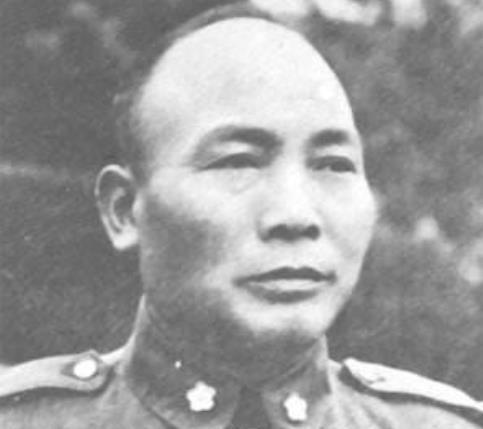At the time of the Pingjin Campaign, although Hu Zongnan was in Xi'an, he paid special attention to the battle. The Liaoshen Campaign and the Huaihai Campaign were defeated successively, and if they lost again this time, then the Nationalist army would really be finished. For fu zuoyi, the commander-in-chief of this campaign, Hu Zongnan was still very impressed, he knew that Fu Zuoyi's defensive skills were very good, and in his early years he had resisted the Feng army with the strength of a division in Zhuozhou for more than a hundred days, so Hu Zongnan believed that this time he would also be able to defend Pingjin.

Who was Fu Zuoyi's deputy at that time? Hu Zongnan did not know, so he turned to ask the confidential secretary next to him, who said that there were 7 deputy commanders-in-chief, namely Shangguan Yunxiang, Feng Qinzai, Wu Qiwei, Song Kentang, Deng Baoshan, Li Wen and Guo Zongfen. When Hu Zongnan heard that Deng Baoshan was also the deputy commander-in-chief, he was so angry that he threw down all the teacups and lamented: This is the end of Beiping. So why did Hu Zongnan say this? This also starts from Deng Baoshan's experience.
Deng Baoshan was a native of Tianshui, Gansu, who had served under Hu Jingyi and Feng Yuxiang for a long time, and was a famous general in the Northwest Army. After the outbreak of the War of Resistance Against Japanese Aggression, he served as the commander-in-chief of the Jin-Shaanxi-Sui Border Region, with headquarters in Yulin. As soon as he took office, he met with Xiao Jinguang, director of the Rear Guard Office of the Eighth Route Army, and reached a tacit understanding of peaceful coexistence. After that, he repeatedly refused Lao Jiang's orders to create "friction," and throughout the War of Resistance Against Japanese Aggression, Deng Baoshan and the Shaanxi-Gansu-Ningxia Border Region maintained good-neighborly relations.
During this period, Deng Baoshan also went to Yan'an many times, and once lived in Yan'an for more than 20 days, during which he not only visited the exhibition of the achievements of large-scale military and civilian production in the border area, but also participated in the model labor conference as a guest and delivered a speech, calling himself a "friend of the Communist Party." After the outbreak of the Liberation War, Hu Zongnan, the king of the northwest, repeatedly ordered Deng Baoshan to send troops to cooperate with him in battle, but he refused for various reasons. In order to strengthen control of Yulin and prevent Deng Baoshan from revolting, Hu Zongnan sent the integrated 28th Brigade to Yulin, and at the same time installed many agents in the Yulin army to monitor Deng Baoshan.
Hu Zongnan's move made Deng Baoshan's situation in Yulin extremely difficult, and it was at this time that Fu Zuoyi, out of the intention of leaving a way out for himself, sent someone to take Deng Baoshan to Beiping and appointed him as the deputy commander-in-chief of the "Suppression General" in North China. Hu Zongnan was very clear about Deng Baoshan's performance in Yulin, and now such a "pro-Communist" person had become Fu Zuoyi's deputy, so Hu Zongnan was very angry, believing that Fu Zuoyi lacked the ability to understand people, and asserted that Peiping could not be defended. Later, the course of the Pingjin Campaign confirmed Hu Zongnan's speculation that Fu Zuoyi eventually revolted peacefully, with Deng Baoshan and Fu Dongju playing an important role.